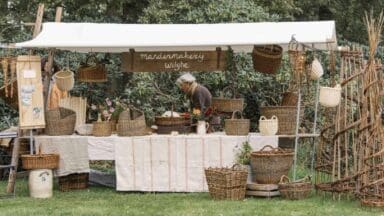
As reports about a beautiful, small, artisan plant fair in the Netherlands increasingly reach us, we thought we’d investigate. Considering its location, attention to detail, variety and quality of exhibitors we thought this is an event more should know about…
The ‘Artisan Plant Market’, takes place at the striking, moated manor of the De Wiersse Estate in Vorden. The estate, which boasts 38 acres of garden and 74 acres of landscape park, has been lived in, designed and managed by the family since 1678 – now, also organisers of the Artisan Plant Market along with their media partner, Gardeners’ World NL and gardening editor, Anne Wieggers. The owners, the Gatacre family, run the estate to the strictest of values of “small-scale and loving stewardship, sustainable gardening, the continuity of family involvement, a strong sense of community, and education through hands-on training”.
Taking place on the 27-28th of September 2025, the event has become known for its offering of sustainable plants, passionate growers and gardening for a climate-proof future. At its core are the 35 or so, specialist nurseries and growers exhibiting, offering everything from organic roses, perennials, seedlings, organic seeds, native plants, traditionally grown (fruit) trees and picking garden plants.
“At the heart of the Artisan Plant Market is an urgent mission: to raise awareness about the kinds of plants we choose to grow and buy. In a country like the Netherlands, where the market is dominated by mass-produced plants—many of which are chemically treated or grown under unsustainable conditions- we aim to give visitors an alternative because we think every garden, no matter how small, can make a difference. Even a balcony or a single window box has the potential to support insects and other wildlife, whose populations are under increasing threat. We see gardening not just as a pastime, but as part of the infrastructure of a sustainable future,” explained Mary Gatacre, Director Landgoed de Wiersse.
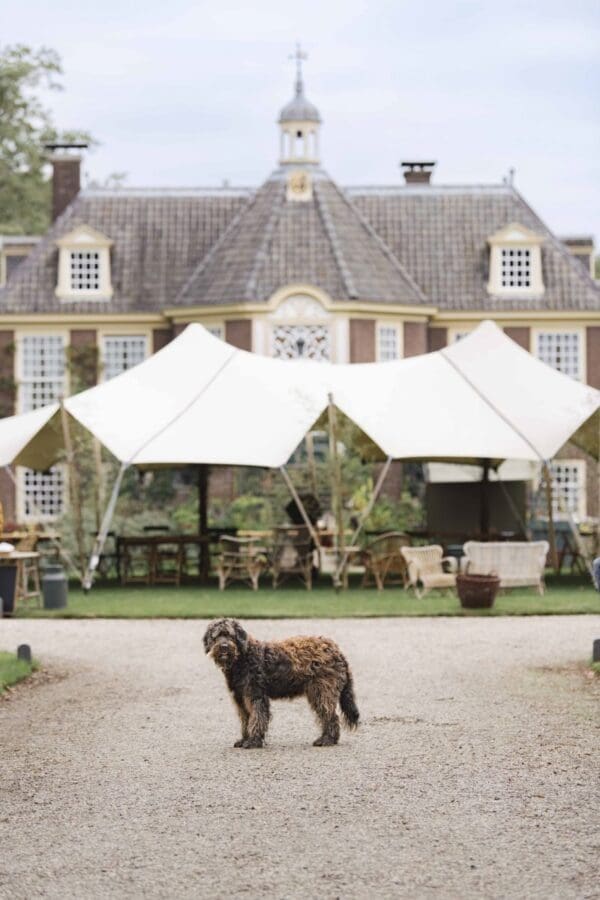
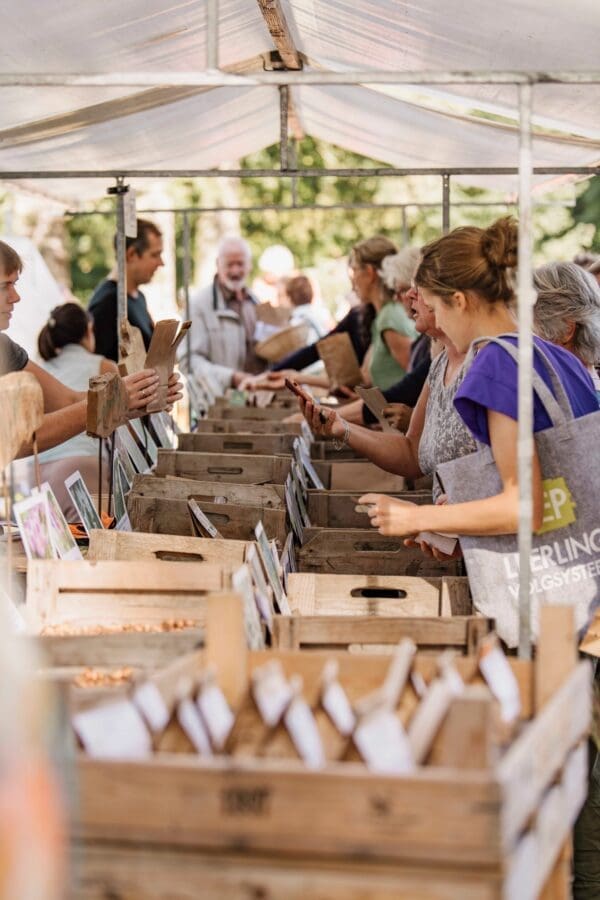
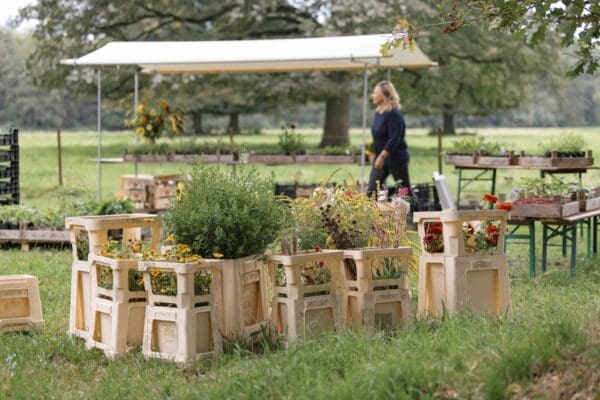
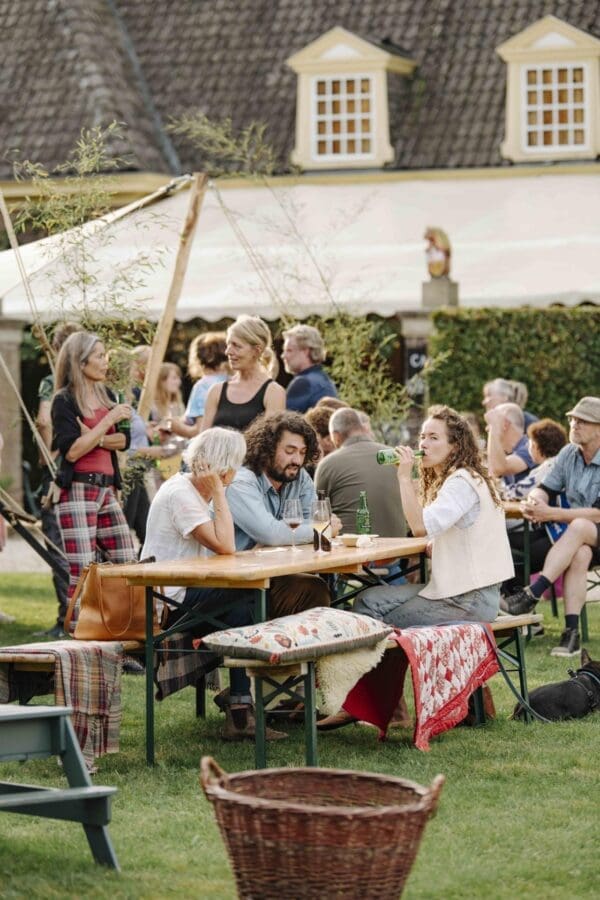
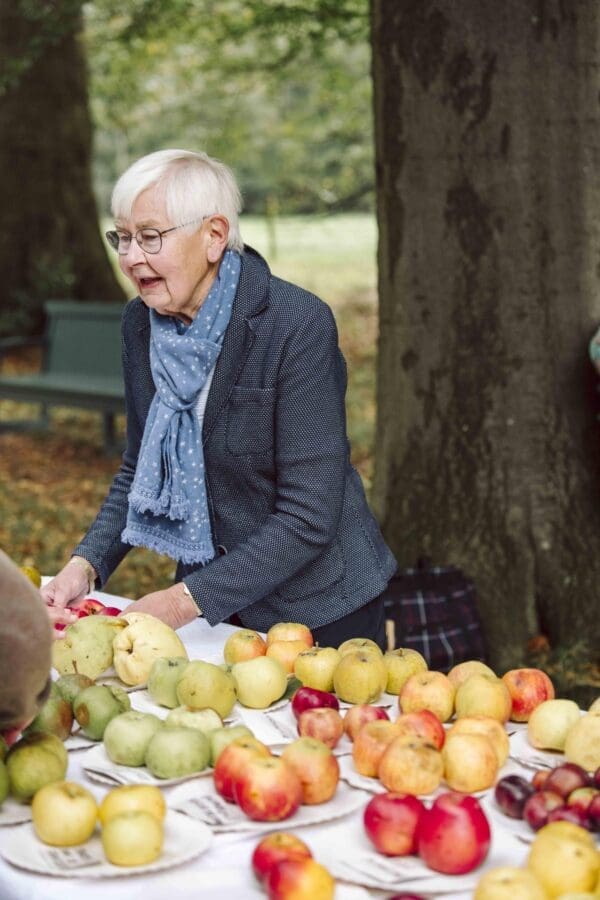
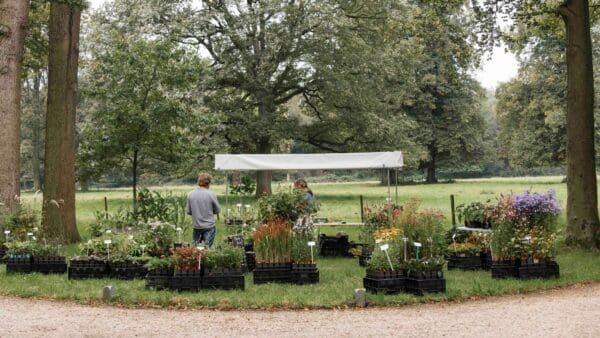
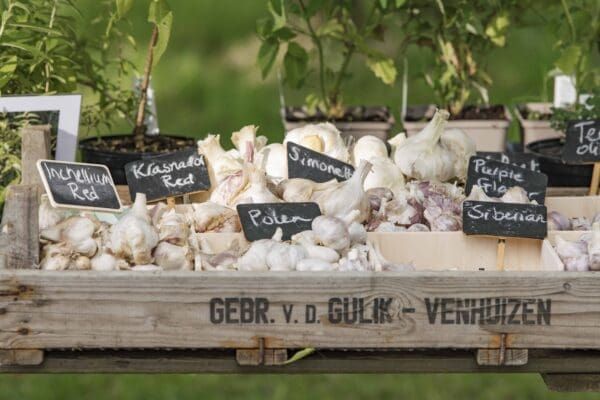
Very popular, the ticketed event attracts around 4000 keen punters each day, the numbers for which are strictly limited to ensure they remain within the bounds of the estate’s capacity. Established in 2023, the Artisan Plant Market ensures all exhibitors are carefully vetted and partake by invitation only. Exhibiting nurseries must abide by the strict rule that their plants are grown sustainably.
“Our original idea was to create a wholly organic plant fair. However, as we began reaching out to small and specialist nurseries, we quickly discovered that while many work with great environmental integrity, few hold formal organic certification. Rather than exclude these excellent growers, we chose to adopt a more nuanced approach. We now use a careful vetting process to ensure that all participants share our commitment to sustainable practices. This way, visitors can be confident that the plants they take home are grown in ways that are not only environmentally responsible but actively beneficial to the landscape and biodiversity,” added Gatacre.
For 2025, the exhibiting nurseries range from large to small-scale growers, including: Hessenhof (certified organic nursery); Cruydt-Hoeck (native wildflowers and seed mix); De Bierkreek (hardy, organic roses suited to Dutch climate); Heleen Calcoen of the Kwekerij Kweek, Belgium (rare, edible seed varieties); Natural Bulbs and De Warande (organically grown bulbs); Vijverplantenland (native aquatic plants); Leemreize (trees & fruit) and StadsBomerij (trees and fruit); Kleikracht (clay loving plants); and Jo Tragter, exhibiting her collection of rare apple varieties.
Gatacre adds that “Together, they represent the best in responsible horticulture—many working organically or using natural methods even if not formally certified.”
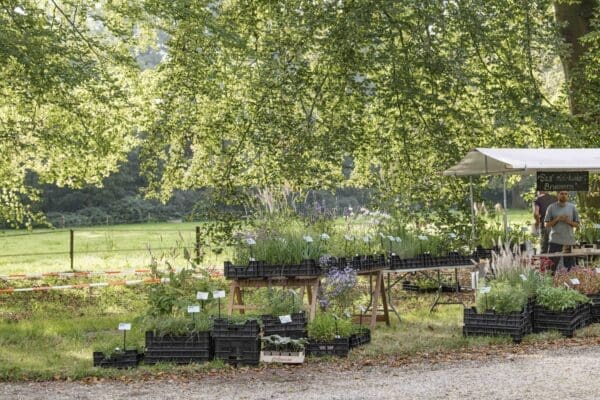
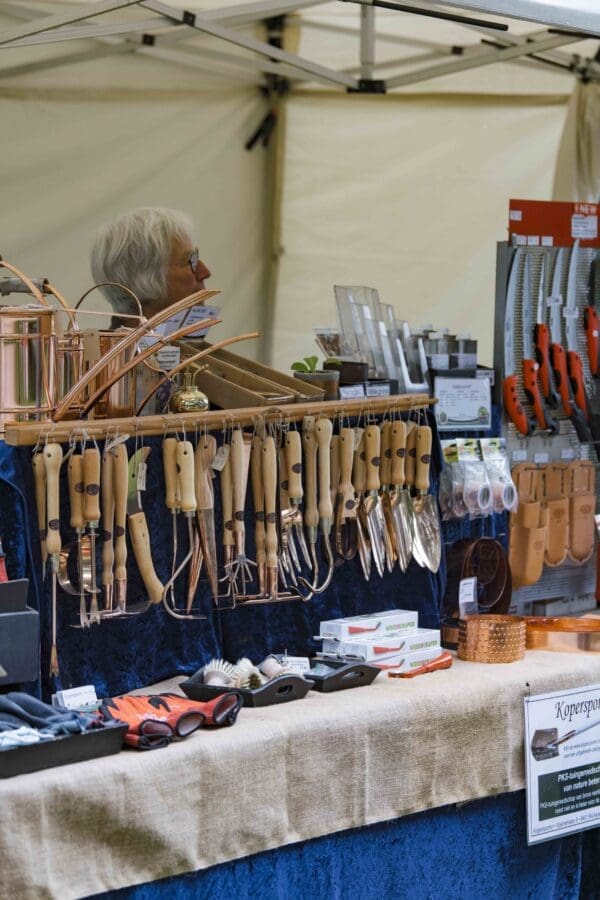
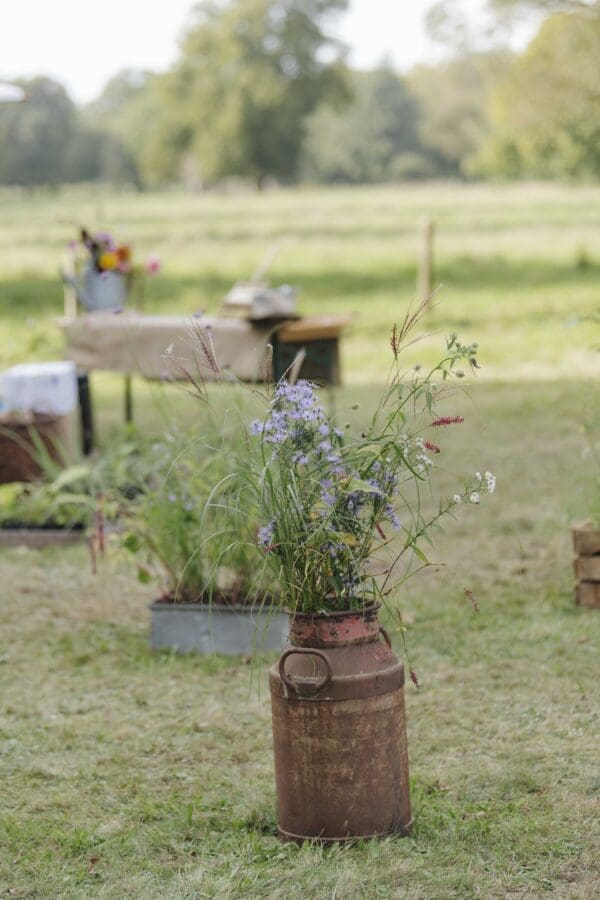
In addition to the exhibiting nurseries, shoppers can peruse the wares of a dozen or so, interesting companies selling gardening paraphernalia and sundries – many familiar to UK gardeners; such as Wool Pots, Sneeboer, Niwaki, Nutscene and Sussex Trugs, along with some intriguing Dutch artisans such as Kopersporen (tools), the Pottenbakkerij De Smeltkroes (outdoor ceramic pots) and Annabel Middeldorp (hand-woven garden baskets).
Edible attractions are also catered for at the Artisan Plant Market, which features a broad selection of sustainable and artisan food. Het Blauwe Huisje will be selling traditional jams, marmalades, and curds; Veld 4 are bring walnut oils and nut butters made from their own trees and for immediate sustenance there are cakes (Café de Wiersse); cider and wines from the province of Brabant (Bar de Wiersse); cheese (de Patrijs); Falafels made from “rescued vegetables”; Karma Kebabs offering vegan kebabs; and market stalls of fresh produce grown on a local regenerative market garden which employs refugees, following no-dig principles.
Not unlike the now sadly demised Cottesbrooke Plant Fair which ceased to operate quite a few years ago, much effort goes into the market’s estethics to ensure a beautiful, natural setting for visitors. No branded banners or flags are allowed, and though admittedly plants are still sold in plastic pots, every effort must be made to ensure displays are as natural as possible.
Any UK attendees are of course reminded of the strict plant health regulations which prevent the public from bringing in plants and plant products into the UK in personal baggage. However, there is of course no limit, nor an excess baggage fee for inspiration…

